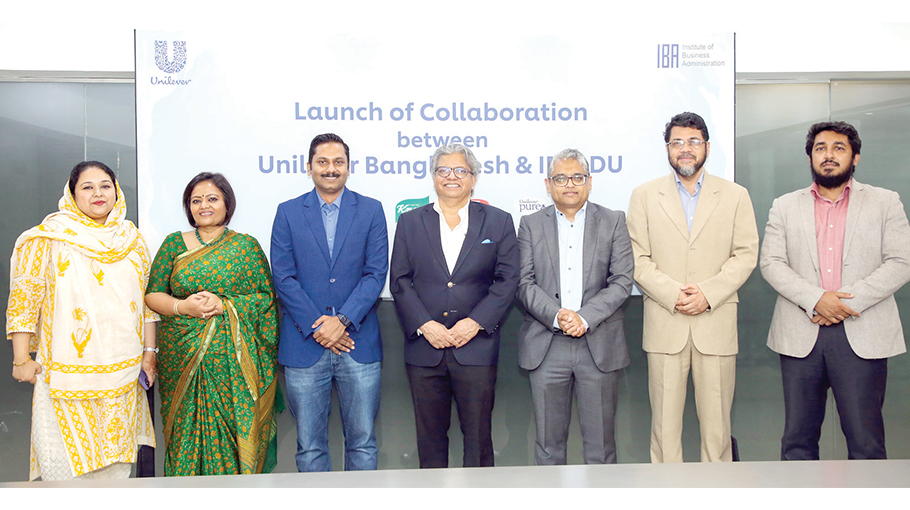UBL teams up with IBA to enhance academic facilities

Unilever Bangladesh (UBL), the country’s leading Fast Moving Consumer Goods (FMCG) company, is collaborating with the Institute of Business Administration (IBA), University of Dhaka, on two new areas under its industry-academia partnership.
The initiatives include commissioning research to increase understanding of plastic circularity in the context of Bangladesh and providing brand sponsorship to enhance the university academic building.
A multidisciplinary team of esteemed faculty members from IBA, including Professor Sheikh Morshed Jahan, Professor Dr. Melita Mehjabeen, Professor Dr. Khaled Mahmud, Professor Dr. Rezaul Kabir, Kaniz Fatema, and Orpita Oysharja, will conduct the research on plastic recycling and waste management.
The research will aim to develop a methodology that addresses challenges faced by recyclers, while also emphasizing producers and consumers’ accountability and responsibility in plastic waste management.
Additionally, it will seek to assess Bangladesh's position in the evolution of plastic circularity within the market and identify feasible models tailored to the local context.
Furthermore, the research will outline gaps in current infrastructure and propose the role of public and private entities in constructing a sustainable model for plastic recycling.
By leveraging their collective expertise and innovative methodologies, the team is poised to make significant strides in advancing sustainable practices and shaping the future of plastic recycling in Bangladesh.
Speaking about the collaboration, Zaved Akhtar, Chairman and Managing Director of Unilever Bangladesh Limited said “At Unilever, sustainability is at the heart of our business. As a part of our global commitment to improve the health of our planet, we have been driving innovative approaches to plastic waste management since 2020, which includes innovation in packaging, creating a sustainable model for plastic waste collection and management, and creating common platforms for multi-stakeholder dialogues and knowledge sharing".




